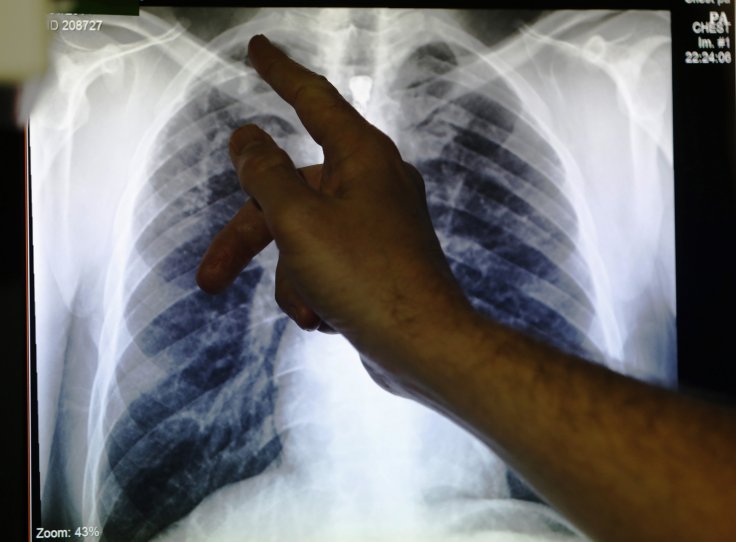AstraZeneca has developed a new pill that significantly reduces the chances of death from lung cancer. The drug named osimertinib has shown promise of reducing the risk of death from lung cancer by half, a decade-long global clinical trial has found.
Administering the AstraZeneca drug after surgery dramatically reduced the risk of patients dying by 51 percent, according to a study presented at the American Society of Clinical Oncology's (Asco) annual meeting in Chicago, IANS reported.

Potent Drug
"Thirty years ago, there was nothing we could do for these patients ...Fifty per cent is a big deal in any disease, but certainly in a disease like lung cancer, which has typically been very resistant to therapies ... Now we have this potent drug," said lead author Dr Roy Herbst, the deputy director of Yale Cancer Center.
More From IANS
Osimertinib, which is marketed as Tagrisso, targets a particular type of lung cancer in patients suffering from non-small cell cancer -- the most common type -- and showing a particular type of mutation.
Lung cancer is the world's leading cause of cancer death, accounting for about 1.8 million deaths a year.
The trial involved patients aged between 30 and 86 in 26 countries and looked at whether the pill could help non-small cell lung cancer patients.
Everyone in the trial had a mutation of the EGFR gene -- which is found in about a quarter of global lung cancer cases -- and accounts for as many as 40 per cent of cases in Asia. An EGFR mutation is more common in women than men, and in people who have never smoked or have been light smokers.

As per the study's findings, more people diagnosed with lung cancer must be tested for the EGFR mutation
The pill proves to be "practice-changing" and should become the "standard of care" for the quarter of lung cancer patients worldwide with the EGFR mutation, Herbst said.
"This further reinforces the need to identify these patients with available biomarkers at the time of diagnosis and before treatment begins."
After five years, 88 per cent of patients who took the daily pill after the removal of their tumour were still alive, compared with 78 per cent of patients treated with a placebo, the report said.








